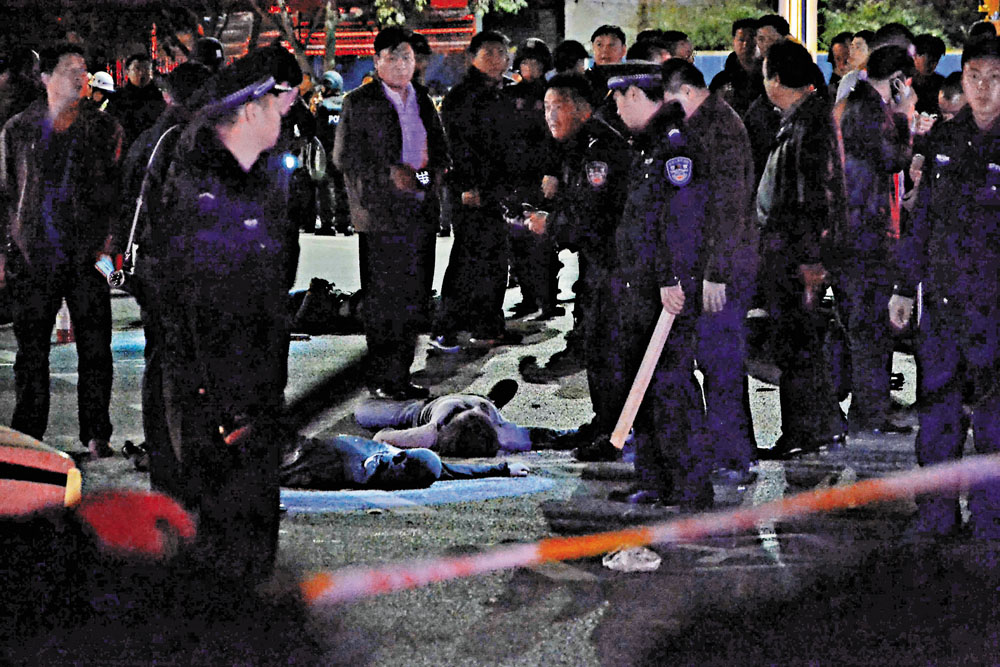




 In recent years, China's anti-terrorism policy has evolved rapidly from a rather reactive "defense against terror" to a proactive "war on terror," along with permanent "crisis management."
In recent years, China's anti-terrorism policy has evolved rapidly from a rather reactive "defense against terror" to a proactive "war on terror," along with permanent "crisis management."
Beijing: Attack on Tiananmen
28 October 2013: A car loaded with explosives rushes into a crowd of tourists on Tiananmen Square in Beijing, leaving five people dead and 40 injured.
Guangdong: Guangzhou Railway Station Attack
5 March 2015: Three knife-wielding attackers injure 13 pepple at Guangzhou railway station. One of the attackers is shot by the police.
Yunnan: The "Kunming Massacre"
1 March 2014: A knife-wielding commando enters the local railway sration, kills 29 and injures 143.
Kashgar: Assassinaion of Jume Tahir
30 July 2014: Jume Tahir, the chief imam of the ancient city of kashgar and deputy president of the government-approved Xinjiang Islamic Association, is stabbed to death.
Bachu: Kashgar Market Attack
12 October 2014: Four attackers storm a wholesale market at Bachu(Jasgfar Prefecture), armed with knives and explosives. 22 people die.
Urumqi: Railway Station Attack
30 April 2014: An attack at Urumqi railway station leaves 3 dead and 79 injured. The attackers use knives and an explosive device.
Urumqi: Market Attack
Two cars loaded with explosies rush into a crowd of people at open-air market in Urumqi in suicide attack, leaving 31 people dead and 94 injured.